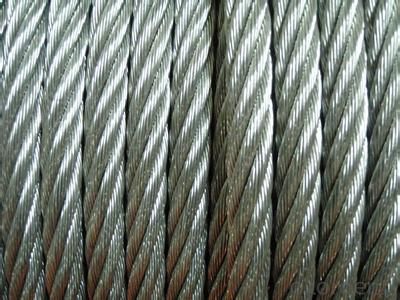Packaging & Delivery
| Packaging Details: | Coil or as customer's requirement. |
|---|---|
| Delivery Detail: | 7 Days after receiving the 30% advanced money |
OKorder Service Pledge
OKorder Financial Service
You Might Also Like
Model Number:8-20#
Surface Treatment:Galvanized
Galvanized Technique:Electro Galvanized
Type:automatic
Function:fencing
Wire Gauge:8-20#
Electro Gal.:Bright
| Packaging Details: | Coil or as customer's requirement. |
|---|---|
| Delivery Detail: | 7 Days after receiving the 30% advanced money |
It is top quality products of Hebei Province which is good quality and competitive price and best service.

Send your message to us
OKorder Service Pledge
OKorder Financial Service
Similar products
Hot products
Hot Searches